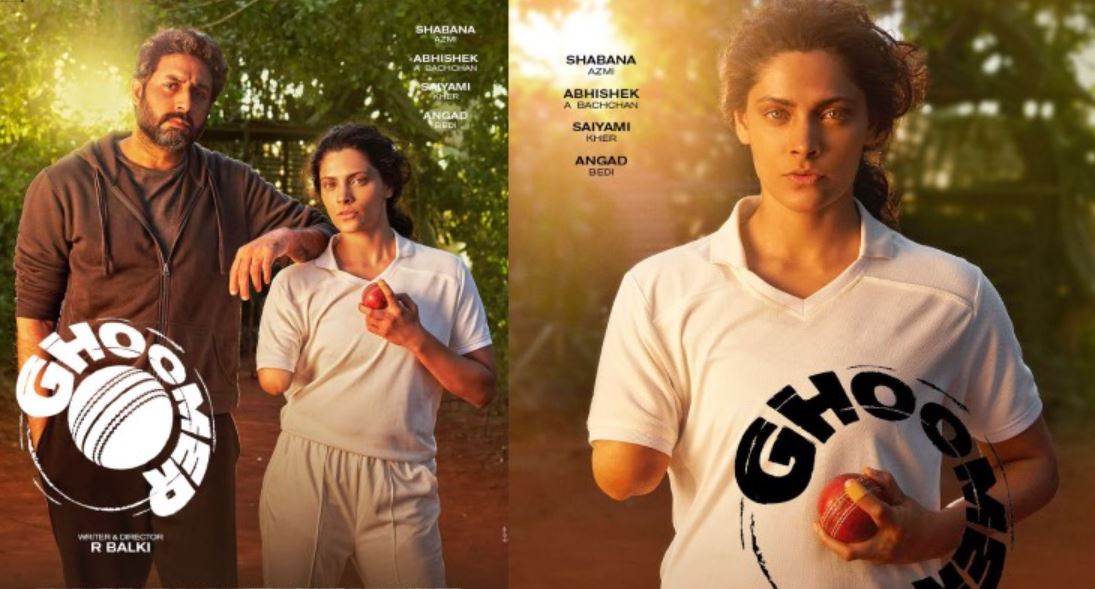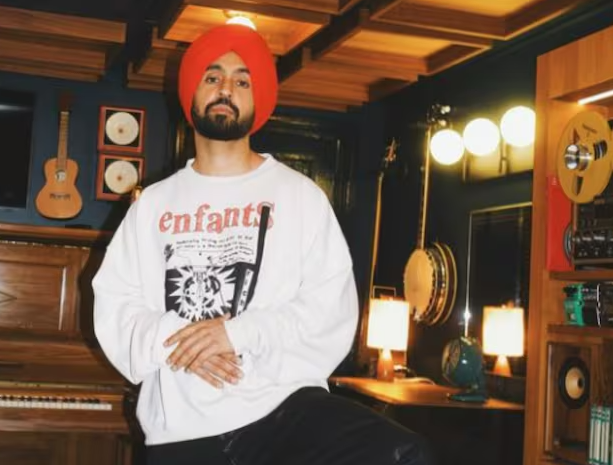“Ghoomer” Movie Review: Abhishek Bachchan’s Nostalgic Echoes, Saiyami Kher’s Resilience Drive This Tale
In “Ghoomer,” Abhishek Bachchan occasionally channels echoes of his iconic father (Amitabh Bachchan, who makes a cameo appearance), particularly during a poignant intoxicated monologue. However, his portrayal ultimately adheres to a familiar archetype.
The narrative revolves around the shattered aspirations of an aspiring cricketer whose dreams of representing the Indian team are shattered by a devastating accident. Enter an embittered, alcoholic mentor who employs a barrage of cutting remarks and a volatile temperament to resurrect her spirits. This complex push-and-pull dynamic between them forms the heart of R Balki’s “Ghoomer.“ The film elevates Balki’s signature dichotomy of logic versus magic to an intense crescendo, compelling the audience to oscillate between these opposing forces, yielding a blend of outcomes.
View this post on Instagram
Among the film’s most captivating elements is Anina Dixit’s (Saiyami Kher) unapologetic poise. She wears her right arm’s amputation, terminating just below her elbow, with unreserved confidence. This unadorned acceptance is a triumph in itself. However, it raises questions: What range of emotions did Anina experience during her journey towards embracing her new reality? How did she arrive at this point so swiftly?
The film, though, doesn’t delve into Anina’s inner turmoil. The focus shifts abruptly from her piercing scream, symbolizing the loss of her “phantom limb,” to the savior poised to rescue her. Padam Singh Sodhi, or Paddy (Abhishek Bachchan), staggers about in a drunken haze, launching stinging aphorisms at those closest to him, including adoptive sister Rasika (Ivanka Das), a transwoman. Paddy mirrors the archetypal ‘Whiplash’-style coaches who believe in tough love to toughen their charges, a harshness born from their own past wounds. While Bachchan’s performance exudes vigor and occasionally evokes memories of his father, it does remain a trope.
Anina’s familial support system, embodied by her doting grandmother (Shabana Azmi, in stellar form), her caring father (Shivendra Singh Dungarpur, revealing a tender side), and two brothers, stands in stark contrast to Paddy’s darkness. Anina’s childhood sweetheart Jeet (Angad Bedi) provides unwavering support as well, but the film glosses over his character’s nuances, beyond a brief mention of his sold-off million-dollar company in the US.
By fixating so intensely on the dynamic between the reluctant student and stern teacher, the film sidelines other characters. Why does the reserved, green-juice-making grandmother, an impassive Roger Federer admirer, take a back seat in Anina’s healing and training? What are the brothers’ roles, beyond being subjects of jokes about overeating? How does the trans character endure Paddy’s venom without retaliation? How does Paddy gradually assert control over Anina’s life without retracing his steps? Anina’s fellow teammates remain enigmatic ciphers.
“Ghoomer” chooses not to delve into these subtleties. Instead, it urges viewers to revel in the parallel journeys of its two flawed protagonists. The film does evoke a surge of emotion when Anina basks in her triumphant moment, although it feels somewhat stretched and contrived. Kher, with her background as a cricketer, exhibits an impressive command of stance and presence.



